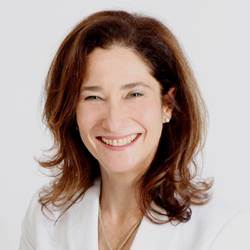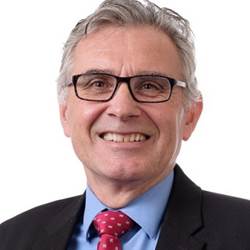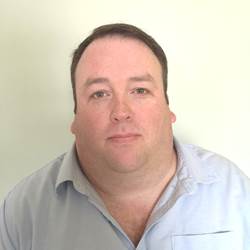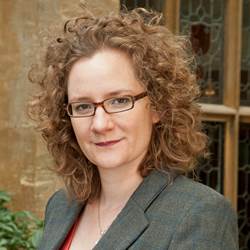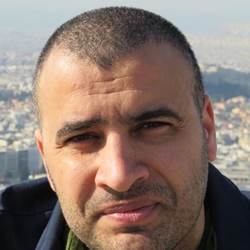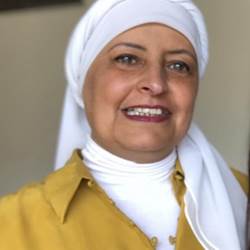
What is the role of arts in addressing historical trauma? What role do the arts play in university transformation towards decolonisation?
Join us for a virtual conference examining how the arts, in all their diversity, can be used to open up space for healing, dialogue, reconciliation and transitional justice across the Commonwealth.
This free online event will bring together leading academics, researchers and artists from across the world for a series of interactive panel discussions. Hear from a fascinating line-up of speakers, including sessions convened by and for post-graduate students.
Developed by senior subject specialists, the programme has been adapted to provide attendees with an intellectually stimulating and rich intercultural experience, even at a distance.
International collaboration remains at the heart of the ACU and its work. We are delighted to partner with Stellenbosch University to bring together a prestigious line up of speakers from around the Commonwealth, whilst safeguarding the health and well-being of staff, attendees and participants during this global health emergency.
- Register online now
- This is the first conference of the Commonwealth Peace & Reconciliation Network. Find out more and join the network here
How to join the virtual conference
You will need to register online for the conference in advance. Once registered, you will later receive a Microsoft Teams invitation with instructions on how to join. You can join by PC, Mac, iPad, iPhone, or Android device. You can also access the conference sessions by clicking on the links below:
Conference Session Links
- Tuesday 9 June: ‘Art in Peace and Reconciliation: A Transnational Perspective’ – Opening & Keynote Session
- Tuesday 9 June: Doctoral Fellows Session I - Northern Ireland Opening Session
- Wednesday 10 June: Doctoral Fellows Session II - Addressing Historical Trauma in South Africa
- Thursday 11 June: ‘Imagining Futures through Un/Archived Pasts’: Emerging Lessons from a Global Cross-disciplinary Collaboration
- Friday 12 June: The University as a Site of Reform
- Friday 12 June: Future Actions and the ACU Peace & Reconciliation Network
The conference sessions will be recorded and available on-demand to all those who register.
Contact us
If you have a query that is not on this page, please email reconciliation@acu.ac.uk
Programme
Day 1: Tuesday 9 June
|
11:00-12:30 London, UK 12:00-13:30 Johannesburg, South Africa 6:00-7:30 Toronto, Canada 15:30-17:00 Mumbai, India 20:00-21:30 Sydney, Australia
|
‘Art in Peace and Reconciliation: A Transnational Perspective’ – Opening & Keynote Session The conference will be opened by the ACU and Stellenbosch University. This keynote panel will explore key themes in Peace and Reconciliation in the Commonwealth and the role of arts in addressing historical trauma drawing on experiences from South Africa, Northern Ireland and Australia. Panel
|
|
14:00-15:30 London, UK 15:00-16:30 Johannesburg, South Africa 9:00-10:30 Toronto, Canada 18:00-20:00 Mumbai, India 23:00-00:30 Sydney, Australia
|
Doctoral Fellows Session I - Northern Ireland Opening Session The ‘Troubles’ in Northern Ireland lasted for 30 years between 1969 - 1999 resulting in almost 3600 deaths and over 40,000 injuries. This panel discussion will be led by Doctoral Fellows from Queen’s University, Belfast and examine the legacy of this period including the demand for recognition and reparations amongst those seriously injured through violent conflict during the ‘Troubles’; how families transmit cultural trauma to second and third generations in post-conflict Northern Ireland and community-based restorative justice. Panel
|
Day 2: Wednesday 10 June
|
11:00-12:30 London, UK 12:00-13:30 Johannesburg, South Africa 6:00-7:30 Toronto, Canada 15:30-17:00 Mumbai, India 20:00-21:30 Sydney, Australia
|
Doctoral Fellows Session II - Addressing Historical Trauma in South Africa This session, led by Doctoral Fellows from the University of the Witwatersrand, the University of Pretoria and Stellenbosch University will examine the role of the arts, literature, and performance theatre in addressing historical and transgenerational trauma in South Africa. Panel
|
Day 3: Thursday 11 June
|
11:00-13:00 London, UK 12:00-14:00 Johannesburg, South Africa 6:00-8:00 Toronto, Canada 15:30-17:30 Mumbai, India 20:00-22:00 Sydney, Australia
|
‘Imagining Futures through Un/Archived Pasts’: Emerging Lessons from a Global Cross-disciplinary Collaboration This session will profile lessons from the ‘imagining futures’ project, a global cross-disciplinary collaboration focused on Archives as negotiations about visions of the future examining whose story will continue to be told and how, and whose silenced in moments of post-conflict, displacement and reconstruction. The project links expertise from: Lebanon, Tanzania, Ghana, South Africa and Syria, building methodologies of egalitarian archiving practice that allows for co-existence and recognition of multiple experiences and narratives of the past that challenge a singular ‘we’. Panel
|
Day 4: Friday 12 June
|
11:00-12:30 London, UK 12:00-13:30 Johannesburg, South Africa 6:00-7:30 Toronto, Canada 15:30-17:00 Mumbai, India 20:00-21:30 Sydney, Australia |
The University as a site of reform This panel session will address the university as a site of reform in advancing peace and reconciliation, the role of the arts, and implications for decolonising methodologies in teaching and learning, research, and engagement. The session will draw on experiences in South Africa, the United Kingdom, and indigenous–settler contexts in Australia and New Zealand. Panel
|
|
14:00-15:30 London, UK 15:00-16:30 Johannesburg, South Africa 9:00-10:30 Toronto, Canada 18:00-20:00 Mumbai, India 23:00-00:30 Sydney, Australia |
Future Actions and the ACU Peace & Reconciliation Network This session will discuss the themes emerging from the conference with a view to identifying the potential for new collaborations and actions for the ACU’s Peace & Reconciliation Network. Panel
|
Speakers



